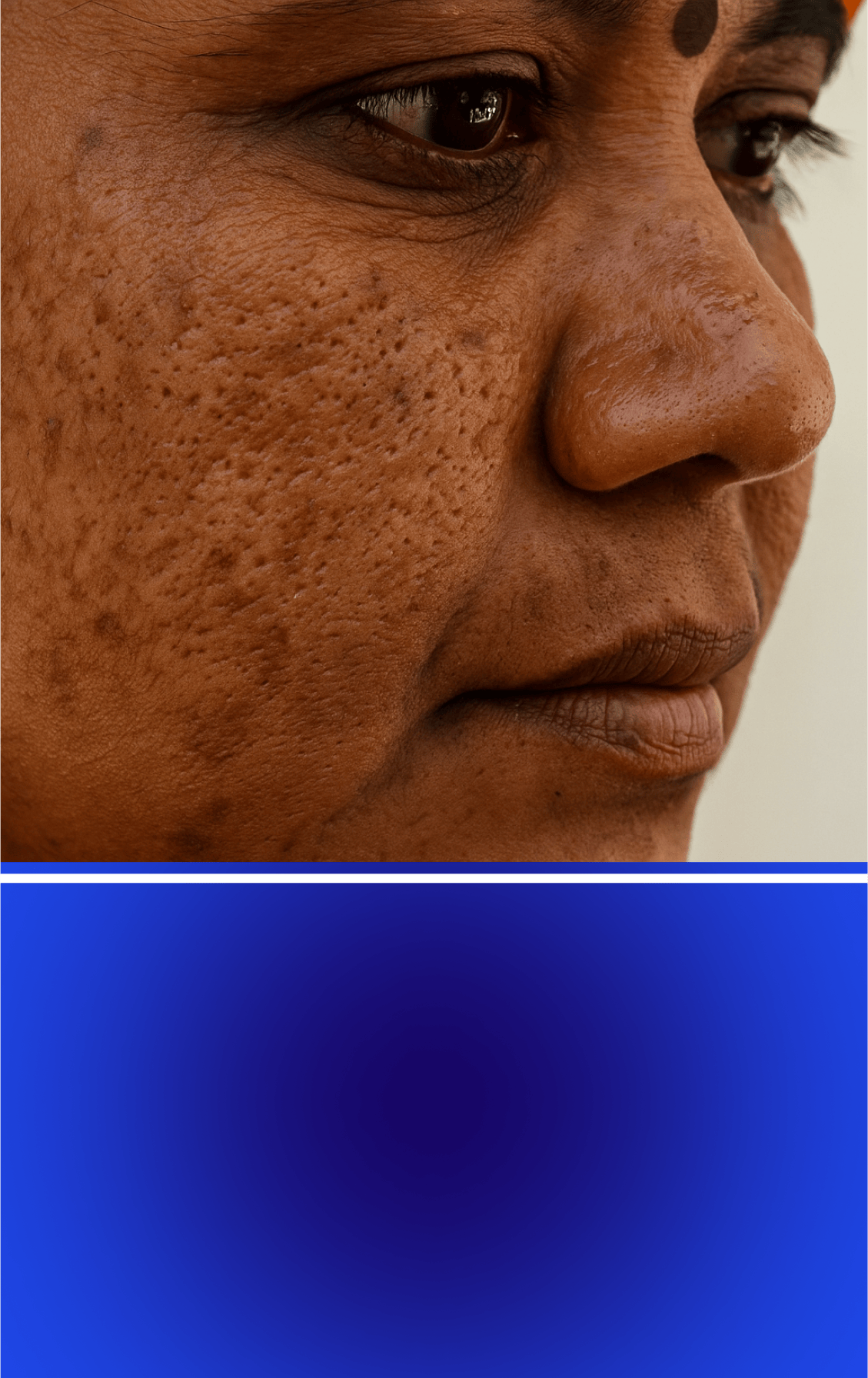Hair thinning or hair loss is a common concern affecting both men and women worldwide. In India, a study conducted in an urban slum area found that 56.5% of young adults aged 18–35 reported hair fall, with 18.7% experiencing noticeable hair loss. Factors such as genetics, stress, poor nutrition, and lifestyle choices contribute to the problem.
As hair loss continues to affect millions, many are seeking hair regrowth solutions to stimulate growth, turning to non-invasive options to avoid the use of medications or surgical treatments.
While many therapies promise results, the key lies in understanding the causes of hair thinning and exploring evidence-based, natural approaches to enhance hair health.
This article explores the primary causes of hair thinning, the role of lifestyle changes and nutrition, and practical remedies that can support hair regrowth without resorting to invasive procedures.
Overview
- Hair thinning affects over 60% of Indian adults, driven by genetics, stress, poor nutrition, and environmental factors like pollution and water quality.
- Common conditions include alopecia areata, pattern baldness, telogen effluvium, and scarring alopecias, each requiring specific treatment approaches.
- Natural hair regrowth solutions, including essential oils, micro-needling, herbal remedies, and nutrient-rich diets, work best in early-stage thinning.
- Key nutrients like protein, iron, zinc, biotin, and omega-3s support healthy hair growth and follicle function.
- Permanent thinning due to genetics or scarring often needs medical treatments, such as PRP therapy or hair transplants.
- Consistency, stress management, and realistic expectations are critical for long-term success with natural regrowth methods.
Key Factors Influencing Hair Regrowth Solutions
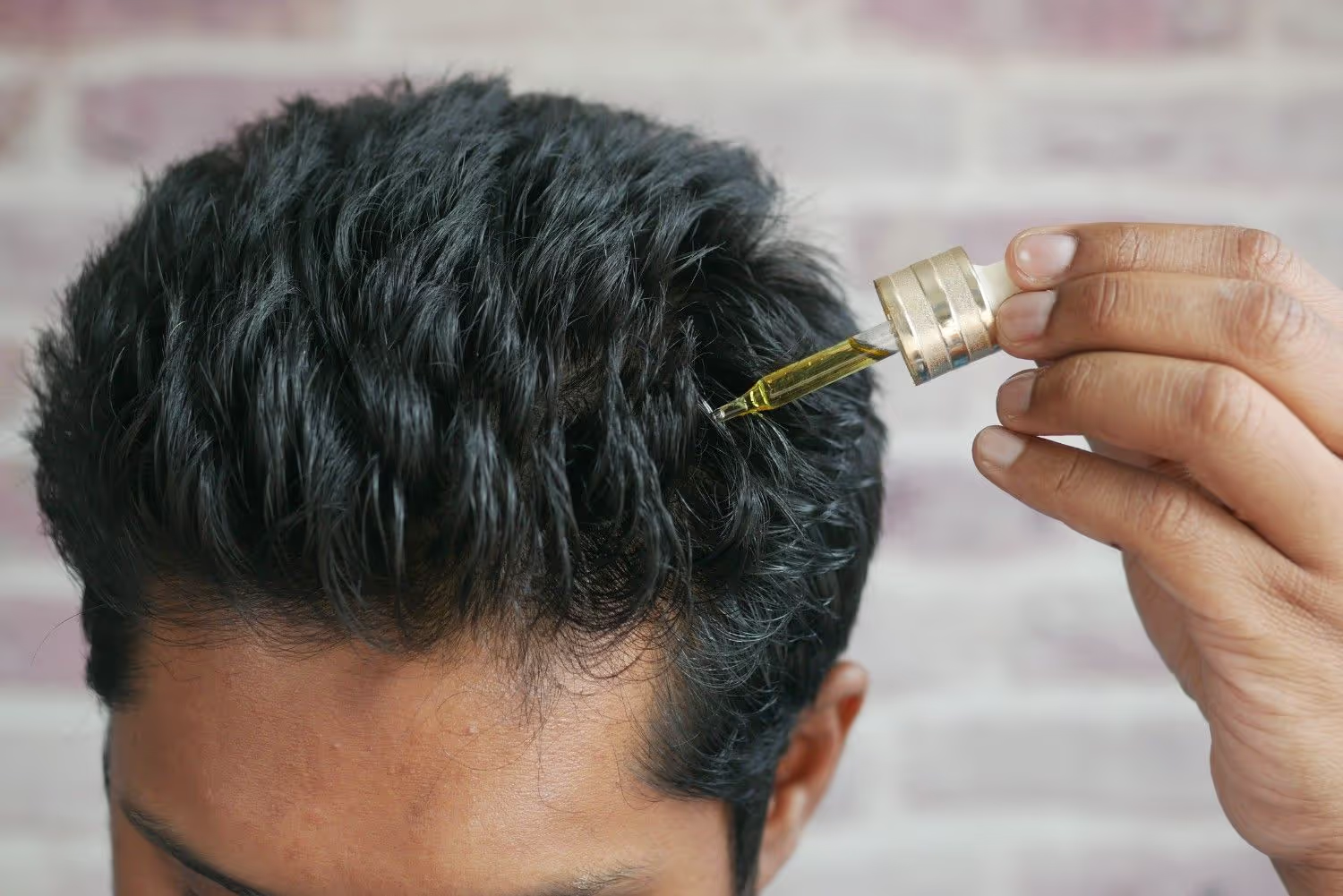
Hair loss can be caused by a variety of factors, ranging from temporary stress to permanent genetic conditions. Here's a closer look at the key factors influencing hair regrowth solutions.
Understanding Specific Hair Loss Conditions
Hair thinning can result from both temporary and long-term conditions. Treating the root cause is necessary to prevent continued loss.
- Alopecia Areata: This autoimmune condition causes patchy hair loss. While it can sometimes resolve on its own, it may also require medical intervention.
- Male and Female Pattern Baldness: Genetic predisposition plays a significant role in pattern baldness, which typically results in a gradual thinning of hair.
- Telogen Effluvium: This temporary form of hair loss often occurs following stress, illness, or hormonal changes, with hair regrowth typically beginning once the trigger is removed.
- Scarring Alopecias: These are permanent conditions where inflammation leads to the destruction of hair follicles.
Severity of Hair Thinning Issues
Hair thinning can range from mild to severe, and its progression depends on the underlying cause.
- Early-Stage Thinning: Early stages of hair thinning are often more responsive to natural remedies and lifestyle changes.
- Advanced Thinning: In advanced cases, hair follicles may become dormant, making it more challenging to stimulate regrowth naturally. Medical treatments may be necessary to address severe thinning.
Role of Lifestyle and Environmental Factors
Lifestyle and environmental factors can significantly impact hair health, either exacerbating or alleviating hair loss.
- Dietary Deficiencies: Poor nutrition can lead to hair thinning, as hair follicles require specific nutrients to remain healthy.
- Pollution and Water Quality: In cities like Chennai, pollution and hard water can damage hair, making it more prone to breakage and thinning.
- Hair Care Practices: Frequent use of harsh chemicals, tight hairstyles, or excessive heat can weaken hair and contribute to thinning.
Evaluating Hair Loss Conditions
Hair loss can result from temporary factors like stress or poor diet, or from permanent conditions such as genetic baldness or scarring alopecia. Identifying the cause helps guide appropriate regrowth treatments and set realistic expectations.
Difference Between Temporary and Permanent Hair Thinning
Knowing whether hair thinning is temporary or permanent helps you select the most effective treatment and understand what results to expect.
Common Causes of Hair Thinning
Common causes include:
- Genetics: A major factor in both male and female pattern baldness.
- Hormonal Changes: Pregnancy, menopause, and conditions like PCOS can cause temporary thinning.
- Stress: Both emotional and physical stress can trigger hair shedding.
- Medical Conditions: Conditions like thyroid imbalances and iron deficiency can contribute to hair loss.
The Role of Ageing and Genetics in Hair Quality
As you age, your hair tends to become thinner and weaker, often due to changes in hormone levels and cellular regeneration. Genetics also plays a substantial role in determining how thick or thin your hair will be over time and whether you’re more likely to experience hair loss.
Early intervention, including the use of natural remedies, lifestyle adjustments, or professional treatments, can help slow or prevent further hair thinning.
How you live each day directly influences your hair health! Let’s explore how lifestyle choices impact it.
At Velantis Dermatology, each diagnosis begins with a detailed evaluation to identify whether hair loss is temporary or permanent, ensuring patients receive appropriate and ethical treatments.
Impact of Lifestyle on Hair Health
Adopting healthy habits can promote stronger, thicker hair, while poor lifestyle decisions can accelerate thinning and hair loss. Here's a deeper look into how diet, stress management, exercise, and hair care routines impact your hair's health.
Effects of Diet and Nutrition
Hair health is closely tied to the nutrients you consume. Key nutrients, such as iron, zinc, and vitamin D, help prevent shedding and promote growth.
- Protein: Hair is made of keratin, a protein essential for hair structure. Without sufficient protein, hair growth can slow, resulting in thinning. Include protein-rich foods like eggs, fish, beans, and nuts.
- Iron: Iron helps red blood cells carry oxygen to hair follicles. A deficiency can lead to anaemia and hair loss. Foods high in iron include red meat, leafy greens, lentils, and fortified cereals.
- Biotin and B-Vitamins: Biotin helps produce keratin and promotes hair growth. B12 and B6 also support scalp health. Biotin-rich foods include eggs, almonds, and sweet potatoes.
Importance of Stress Management and Exercise for Hair Health
Both stress and physical activity have a direct impact on hair health. Managing stress and staying active can significantly improve hair growth and reduce thinning.
- Chronic Stress: Long-term stress can trigger telogen effluvium, leading to premature hair shedding. Elevated cortisol disrupts follicle function. Managing stress through mindfulness, yoga, meditation, and adequate rest can help reduce hair loss.
- Exercise: Regular exercise boosts blood flow to the scalp, delivering nutrients to hair follicles for healthier growth. Aim for 30 minutes of moderate activity most days.
Influence of Product Usage and Hair Care Routines on Hair Health
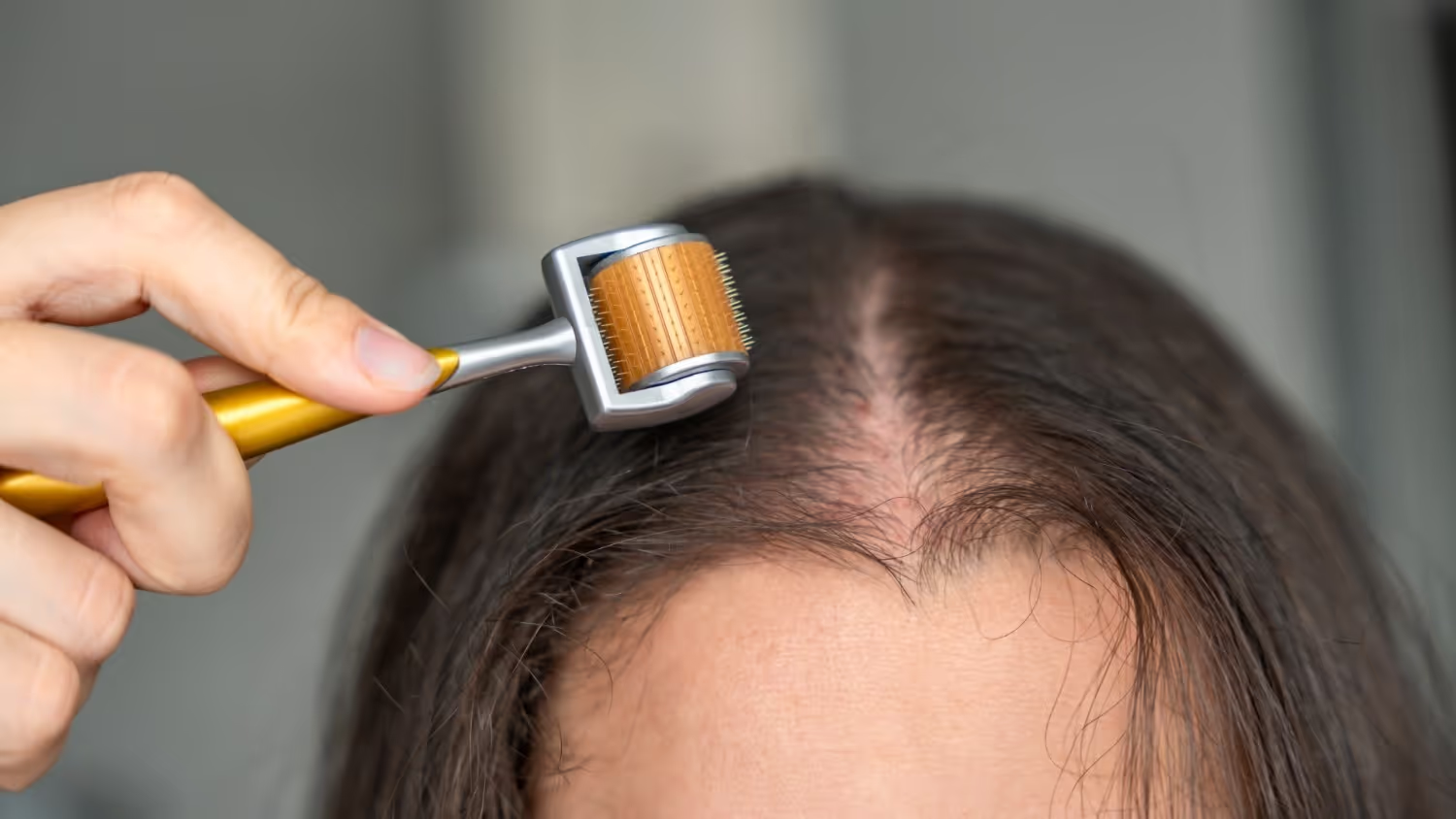
The products you use and your hair care habits can impact your hair's health. Here’s what to focus on:
- Shampoo and Conditioner Choices: Opt for sulfate-free products with moisturising ingredients, such as argan oil or aloe vera, to nourish your hair without weighing it down.
- Avoid Tight Hairstyles: Tight hairstyles, like ponytails and braids, can cause traction alopecia. Use gentle hair ties to reduce scalp tension.
- Regular Trimming: Trimming your hair every 6–8 weeks helps prevent split ends and keeps your hair looking fuller and healthier.
- Scalp Health: Gently massage your scalp during shampooing to improve circulation, and consider using scalp treatments, such as tea tree oil, to prevent buildup.
Alongside lifestyle changes, specific natural remedies can give your hair the boost it needs to regrow.
Natural Remedies for Hair Regrowth
Natural remedies can support hair regrowth by improving scalp health and nourishing hair follicles. Here are some commonly used options.
Essential Oils for Stimulating Hair Growth
Essential oils are a popular natural treatment, known for their ability to improve circulation and promote healthier hair. Here are the most effective oils for hair regrowth:
- Rosemary Oil: Known for its ability to boost scalp circulation, it is widely used to promote hair growth and overall health.
- Peppermint Oil: Contains menthol, which stimulates hair follicles and promotes stronger hair growth.
- Lavender Oil: With its antimicrobial properties, lavender helps maintain a healthy scalp, which is crucial for hair growth.
Vitamins That Support Healthy Hair Growth
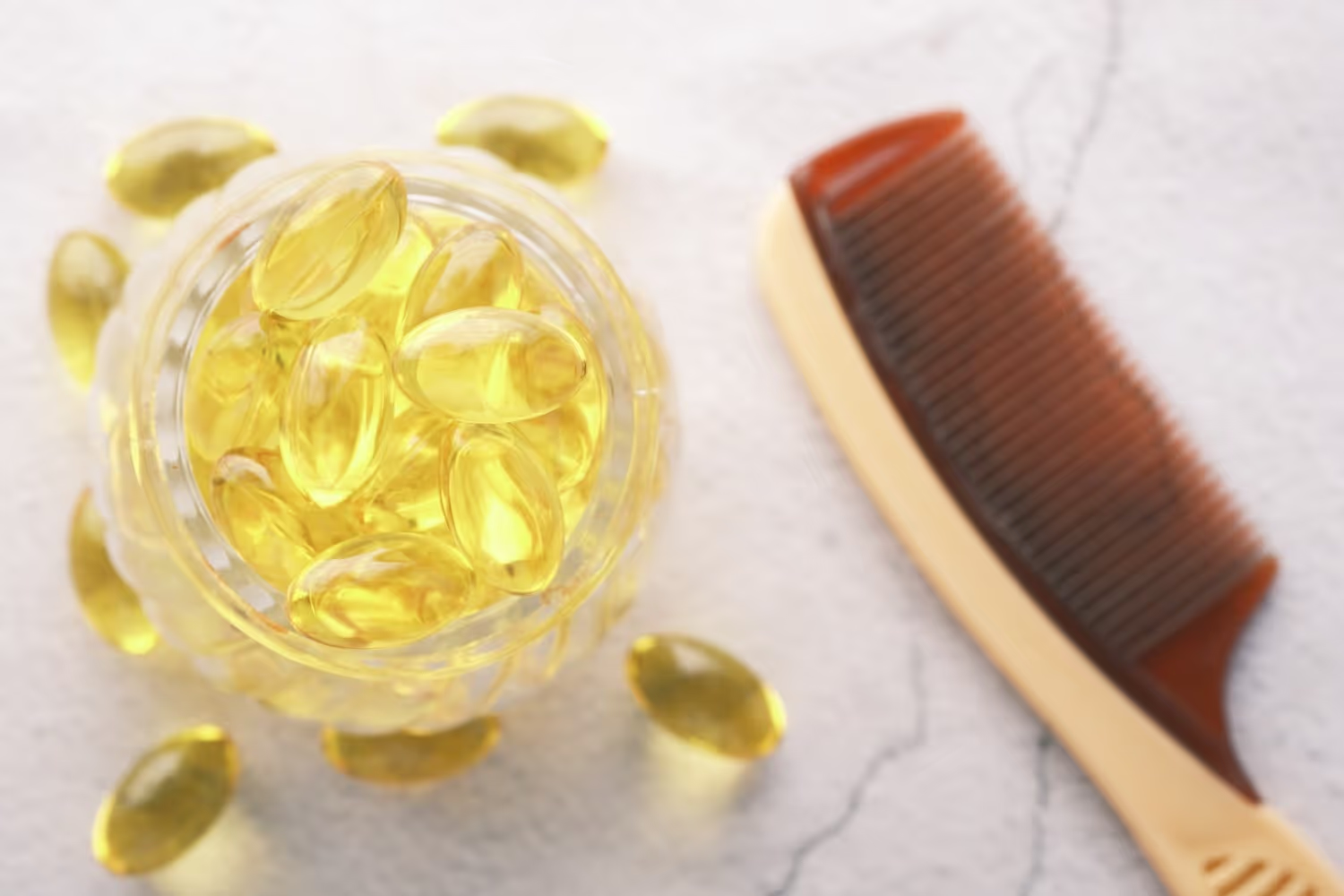
Specific vitamins and minerals are vital for nourishing hair follicles and supporting growth. Here are the top vitamins that help strengthen hair and encourage regrowth:
- Biotin: Supports keratin production, the key protein in hair structure, promoting stronger hair.
- Vitamin C: Protects hair follicles from oxidative damage, helping maintain healthy hair.
- Vitamin E: Reduces oxidative stress and enhances scalp health, encouraging better hair growth.
Additional Natural Treatments for Hair Health
Incorporating other natural treatments can further support hair health and boost regrowth. Some additional methods include:
- Micro-Needling: Creates tiny scalp injuries to stimulate follicles and boost absorption of treatments like minoxidil.
- Hair Masks: Natural masks with yoghurt, honey, or eggs nourish hair, reduce breakage, and improve texture.
- Herbal Remedies: Hibiscus and aloe vera help nourish the scalp and support healthier hair growth.
At Velantis Dermatology, we select natural remedies like micro-needling or essential oils when clinically appropriate, ensuring every method aligns with dermatological standards.
Ultimately, what you eat has a direct impact on your hair. Let’s explore pertinent foods that support healthier hair.
Dietary Considerations for Hair Regrowth
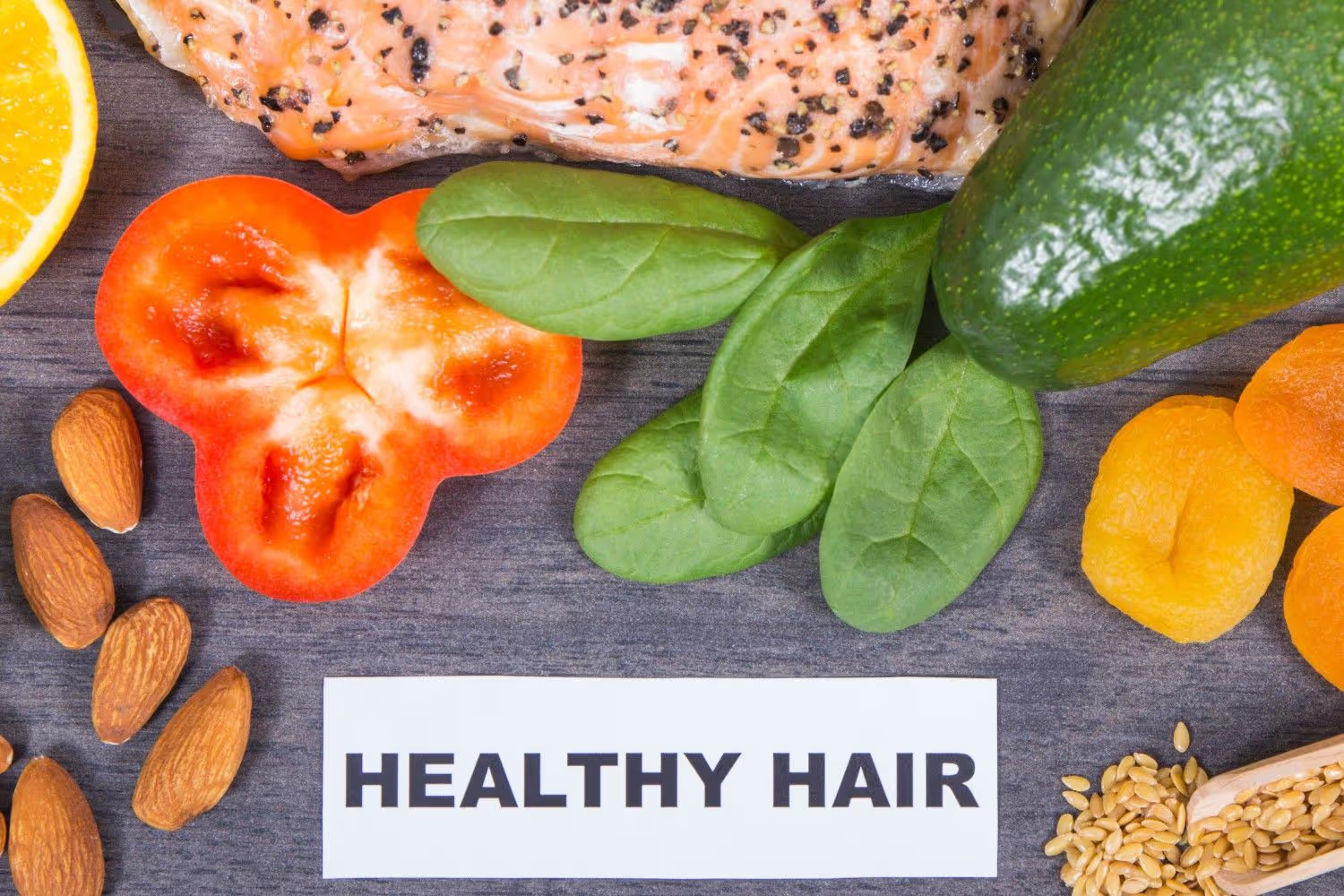
A balanced diet supports stronger hair and healthy follicle function. The following foods are known to promote hair growth.
1. Incorporating Foods Rich in Omega-3 and Antioxidants
Certain foods promote hair growth by nourishing the scalp, improving blood flow, and protecting follicles from damage:
- Fatty Fish: Omega-3s in salmon, mackerel, and sardines support follicle function and reduce inflammation linked to hair loss.
- Nuts and Seeds: Walnuts and flaxseeds provide healthy fats, zinc, and antioxidants that nourish the scalp and protect follicles.
- Berries: Strawberries, blueberries, and raspberries are rich in antioxidants that help protect follicles from free radical damage.
2. The Impact of Vitamins and Minerals on Hair Health
Specific vitamins and minerals are closely tied to maintaining healthy hair follicles and promoting growth. Here are key nutrients that can support hair from the inside out:
- Vitamin D: Vitamin D stimulates hair follicles and supports growth. Low levels are linked to thinning, especially in autoimmune cases. Sunlight and fortified foods help maintain levels.
- Iron: Iron helps deliver oxygen to hair follicles. Low iron can slow growth and increase shedding. Sources include red meat, spinach, lentils, and fortified cereals.
- Zinc: Zinc aids cell repair and supports follicle strength. It also regulates scalp oil. Found in chickpeas, pumpkin seeds, and shellfish.
3. Beneficial Foods to Include for Hair Growth
Incorporating the following foods into your diet provides the nutrients required to support hair regrowth and keep strands healthy:
- Leafy Greens: Spinach and kale are rich in iron and folate, helping nourish the scalp and support healthy hair growth.
- Legumes: Lentils, chickpeas, and beans offer plant protein, biotin, and zinc—all key for strong, healthy hair.
- Eggs: Eggs are rich in biotin and protein, which help strengthen strands, repair damage, and support growth.
However, some types of hair thinning present challenges that may need more targeted solutions.
Challenges in Regrowing Hair with Permanent Thinning
Permanent thinning is difficult to reverse. Natural remedies rarely work, so understanding the limits helps in choosing the right treatment.
1. Difficulties in Regrowing Hair with Permanent Thinning
Understanding the limitations of natural remedies is key in cases of permanent thinning:
- Permanent Conditions: Scarring alopecia and genetic pattern baldness often lead to irreversible follicle damage, making natural remedies less effective.
- Hair Follicle Damage: These conditions cause the destruction or shrinkage of hair follicles, hindering natural regrowth.
- Medical Interventions Required: In these cases, options such as hair transplants, PRP therapy, and medications are necessary to stimulate growth.
2. Setting Realistic Expectations and Practising Patience
When using natural methods for regrowth, setting expectations is essential:
- Slow and Gradual Process: Natural hair regrowth can take several weeks or months to show visible improvements.
- Varied Success Rates: The effectiveness of treatments can differ based on individual factors such as the cause of thinning and treatment consistency.
- Consistency is Key: Stick to a regimen, remain patient, and avoid getting discouraged by slow progress.
3. Consulting with Professionals for Severe Hair Loss
For advanced cases, professional help is often needed:
- Customised Treatment Plans: Dermatologists and hair specialists can provide tailored treatments to address severe hair loss.
- Advanced Treatment Options: Medical treatments, such as hair transplants or laser therapy, can be more effective for addressing permanent hair thinning.
- Early Consultation: Seeking professional advice early ensures timely intervention, preventing further damage and promoting better outcomes.
PRP therapy and hair transplants offered at Velantis Dermatology are performed only by qualified dermatologists, ensuring ethical and result-driven care
With the right strategies and patience, regrowing your hair naturally is well within reach. Remember, consistency and a personalised approach are key to achieving lasting results.
Conclusion
Regrowing thinning hair naturally is possible with the right combination of lifestyle changes, a balanced diet, and effective hair regrowth solutions. While some causes of hair thinning, such as genetics, may require medical intervention, many individuals can achieve positive results with natural methods.
At Velantis Dermatology, we are committed to providing evidence-based solutions tailored to your unique needs. Whether you are dealing with temporary hair loss or more severe thinning, our team is here to help guide you through safe and effective treatment options.
If you're looking for a trusted dermatologist in Chennai for hair thinning or scalp concerns, Book a Consultation Today. Let us help you restore your hair health with precision and care.
FAQs
Q1. How does inflammation contribute to hair loss?
A1. Chronic inflammation can damage hair follicles, leading to scarring alopecia and telogen effluvium. Elevated markers like IL-6 and CRP are linked to follicle miniaturisation and shedding. Targeting inflammation may improve outcomes.
Q2. What role does the scalp microbiome play in hair loss?
A2. Scalp dysbiosis can trigger inflammation, affecting follicle health and contributing to conditions like dandruff and alopecia areata. Probiotics or antimicrobial treatments may help restore microbial balance.
Q3. How does scalp hypoxia affect hair thinning?
A3. Low oxygen levels in the scalp impair follicle function and increase shedding. Treatments like minoxidil and micro-needling improve circulation and oxygen supply, supporting growth.
Q4. How do androgens influence hair regrowth in men and women?
A4. Androgens, especially DHT, shrink follicles in androgenetic alopecia. In women, hormonal shifts can raise androgen levels. Anti-androgens like finasteride may block DHT and aid regrowth.
Q5. What is the potential of stem cell therapies for hair loss?
A5. Stem cells may regenerate follicles and promote growth. However, issues like cost, delivery methods, and standardisation remain. Further research is needed on long-term results.
Q6. How do genetic factors affect hair regrowth treatments?
A6. Genes influence how treatments work, with variations in androgen receptors and growth factors affecting outcomes. Genetic testing may help customise more effective regrowth plans.


.png)
